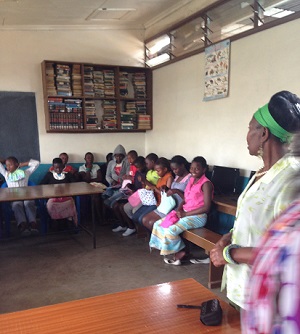Alternatives emerge for disposable sanitary napkins

Most women resort to unhygienic practises just to survive the cycle because sanitary towels remain a luxury for millions of women in Africa due to the high level of poverty and the commodification of the basic product. The majority of girls in Africa miss up to 50 days of schooling each year due to menstrual related challenges resulting with girl learners missing up to 300 days(almost a whole year) over a period of 6 years.
The statistics around feminine hygiene products are no less alarming. Only 12% of the 355 million women of menstruating age in India can afford disposable sanitary napkins. But these 42.6 million Indian women will conservatively throw 21.3 Billion sanitary napkins into a landfill in their lives.
Apart from wood pulp used in sanitary napkins, chlorine bleach is a key ingredient; used to whiten the pulp for aesthetic reasons. Chlorine bleach is both an environmental and health hazard, releasing toxic chemicals as a by-product of the bleaching process.
At every stage of manufacturing and use, disposable products like diapers and sanitary napkins, waste precious resources like crude oil and trees, contaminate water and the atmosphere with dangerous chemicals, and finally end up in a landfill since there is no option to dispose them in a safe manner.
Solution:
Two options exist for concerned women who want to explore healthier and more environmentally sustainable options for sanitary napkins.
The first is the “SheCup” which is worn internally, and is made from silicone and designed like a cup to collect the menstrual blood. This can be worn for 12 hours. Once full, the contents of the cup can simply be emptied into the toilet, and the cup can be cleaned and worn again.
The second option is a re-usable sanitary napkin made from cloth. The design and use of these cloth napkins is similar to disposables, and they provide absorbency by using many layers of cotton. They have options for heavy and light flow days and a combination of the two can fully substitute disposable napkins every month. They are quite easy to care for as well, and can even be washed in a washing machine after soaking and removing all the menstrual discharge. Here again, the re-usable cloth napkins protect the user from coming in contact with a number of harmful chemicals found in disposable napkins.
The thought of switching entirely to reusable options may seem daunting. But every sanitary napkin or disposable diaper you can save from a landfill will have a cascading effect and positively impact forests, water, air, the city you live in and your health.
By Njeri Thubei



